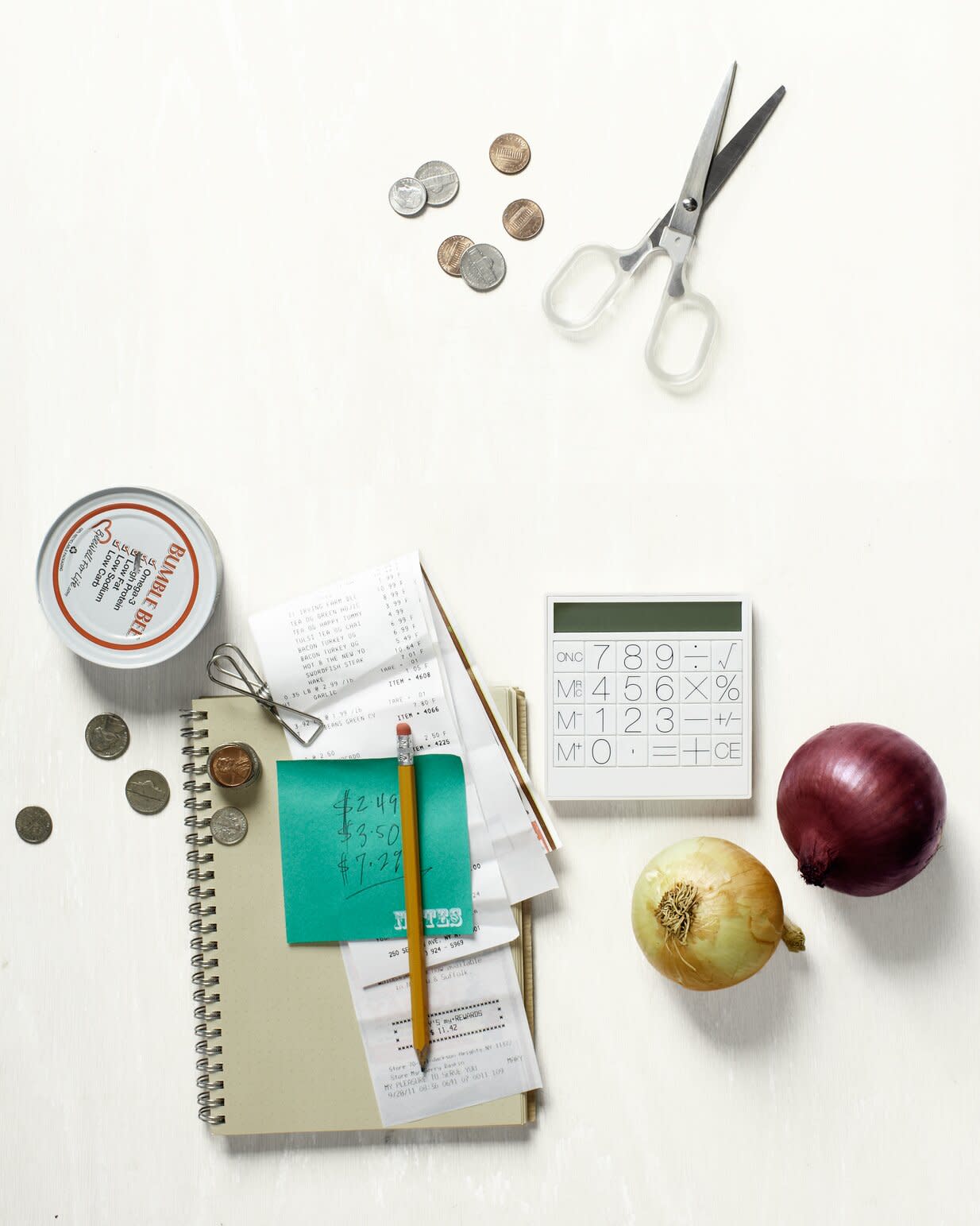How to Financially Plan for Your First Year of Marriage

So you had all of those premarital talks you were supposed to: You discussed your goals for the future, including children, family, careers, and traveling; you came clean about the state of your personal finances; you even chatted about the home you'd like to buy, eventually, one day, when you can afford it. But even with all that hard work, nothing can quite prepare you for the first year of marriage.
Though an often blissful time for many couples, it's also a stressful time where you're figuring out how to work together as a team in every aspect of your now-shared lives. But of all the things couples fight about during the first 12 months of marriage? The top three are babies, sex, and money. That last one though? It's a doozy. And early into your marriage, it's the hot topic you'll need to cover, especially as you begin to save and consider your long-winded future together.
Go ahead and pull off the Band-Aid, financial experts and planners advise. Here's how to save money in your first year, without it ruining your love affair.
Related: Things That Will Definitely Happen During Your First Year of Marriage
Change your language from "I" to "we."
Financial expert and author Erin Lowry says that the first step to a bright, fruitful future together is changing your mindset and language toward finances. Instead of thinking about your individual income, investments, savings, and debt, it's time to become a team and tackle all of the pillars together. This means being super transparent and honest about your accounts, no matter how many you have. "Even if you plan to have separate accounts, the two of you should have at least monthly money check-ins to ensure you're in-sync and that you are both completely aware of your financial situation as a couple," she says.
Develop a comfortable budget.
Because it's very rare that a couple would make exactly the same amount of money, have matching savings accounts, and identical student loans, compromise will be necessary when you consider your first marital budget. To help do this, Lowry suggests creating a "spending threshold," where you both have some fun, frivolous money that you can spend on whatever you want, while still meeting your shared savings goals. If you need to spend beyond that, you should have a conversation together. "Perhaps you decide it's okay to make a $100 purchase without giving your spouse a heads up to ensure it doesn't negatively impact your current budget or financial goals," she says. "This isn't about who is the breadwinner, it's about respecting each other and keeping both parties in the loop about how money is being spent."
AN EXPERT DEBUNKS 5 COMMON NEWLY-MARRIED MONEY MYTHS
Be brutally honest about debt.
Having a lot of money that you owe to credit card companies, Sallie Mae, or Uncle Sam is one of the heaviest burdens you'll face together. It can be especially difficult when one half of the couple is debt-free. Once you're married, you both could be responsible for it, depending on how you set up your finances. That's why financial expert and founder of CreditCardInsider John Ganotis says to get the debt conversation out on the table ASAP (if you haven't already).
"If a couple is thinking about combining finances, it's important for them to discuss their current financial situation, like debts, before getting married. I've heard horror stories about one partner finding out about a spouse's debt after marriage. Even if you're not legally liable for a spouse's debt, it can be a huge source of conflict and a big roadblock in starting your life together," he says.
Make a reasonable game plan for debt.
The sooner you pay off what you owe, the more opportunities you have to build your life together. The big questions to answer are how you're going to manage your shared debt pictures, and how much you're going to contribute each and every month. "If a couple is combining finances and one or both partners have debt, figure out a plan for paying it off. Will you both be equally responsible? Or will each partner pay off his or her own debt? Having a plan can help avoid incorrect assumptions and the conflict that comes from it," Ganotis says.
10 CONVERSATIONS YOU NEED TO HAVE BEFORE YOU GET MARRIED
Don't hide anything.
To avoid an emotional withdrawal and a possible threat to your marriage, Ganotis says to put all of your cards on the table from the very beginning. "If you're committing to combining your finances, don't try to hide purchases from your partner. If you hide expenses from your partner and he or she finds out, your partner may start hiding things from you or spending more for revenge, which could quickly snowball into distrust in both directions, in addition to debt," he notes.
Have a monthly money meeting.
And while you might think it's a good idea to drink a bottle of vino before you get down to business, Lowry says let the booze (and the smooching) be the reward for balancing your accounts at the end of the month. It's important to come to this one-on-one with a clear head, ready to talk about some potentially touchy and tough topics. "You two decide on the time, place, and date-but regularly have a household money meeting. It's an easy way to see if you're on track to meet your goals. Tweak a household budget. Ensure all the bills are being paid and to be accountability buddies with each other," she says.
And then, of course? Celebrate! Even if it's merely with some leftovers and a Two Buck Chuck from Trader Joe's.
